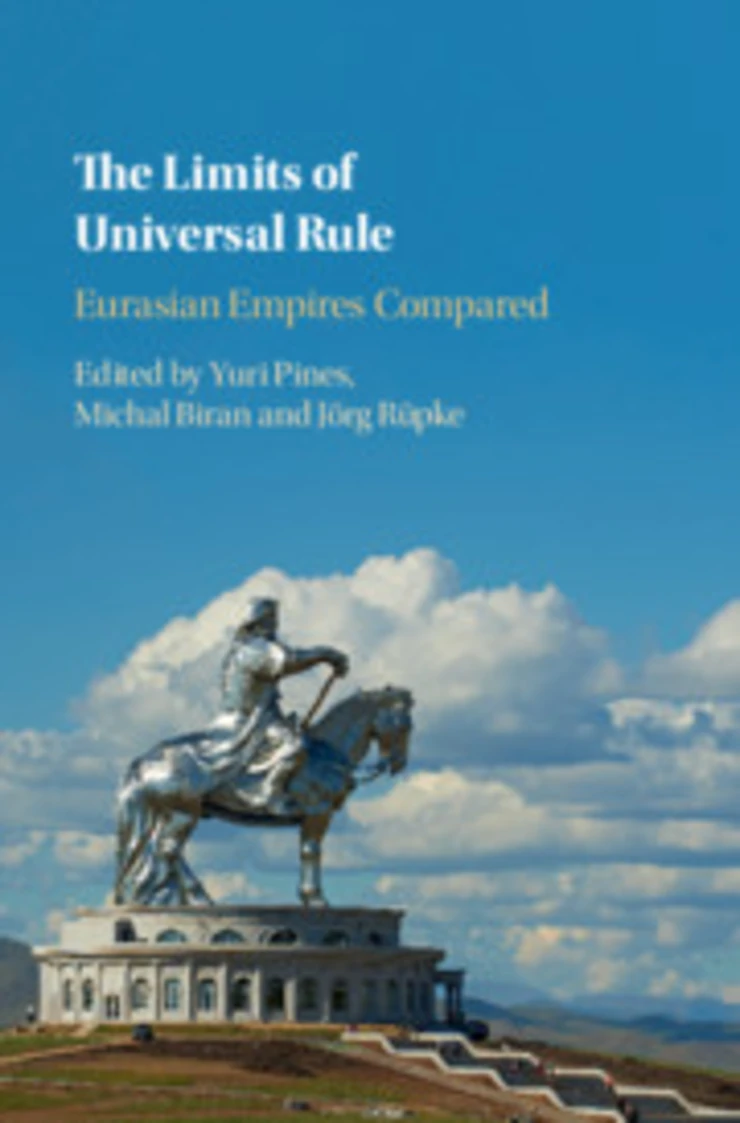It elaborates on problems that imperial political structures have faced around the world: How did empires in different parts of the world and in different periods address these problems?
The project is based on a series of thematic workshops bringing together scholars working on different empires. They cover the five major centres of civilisation in the Old World (East Asia, Europe, Inner Asia, the Middle East and South Asia) where imperial formations developed through interaction and cross-fertilisation. For each of these macro-regions, a distinction is made between the first wave of empire formation (mostly in the second half of the first millennium BC), the second wave (in the middle of the first millennium AD) and the third wave triggered by the formation of the Mongol Empire in the 13th century.
A first volume with research results has now been published by Cambridge University Press: The Limits of Universal Rule: Eurasian Empires Compared, edited by Yuri Pines, Michal Biran (Hebrew University) and Jörg Rüpke (Max Weber-Kolleg, University of Erfurt). Based on a conference held in Erfurt and Eisenach in 2015, it examines the factors that facilitated the expansion and contraction of Eurasian empires: from ideology to ecology, from economic and military considerations to the changing composition of imperial elites.

